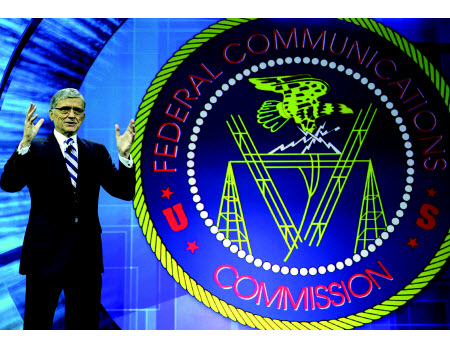Wheeler Could Be a Dealer on Set-Tops
The smarter way to stay on top of the multichannel video marketplace. Sign up below.
You are now subscribed
Your newsletter sign-up was successful

WASHINGTON — Federal Communications Commission chairman Tom Wheeler may have shifted the agency’s position on new set-top box rules as he works toward an order he has said he plans to put to a vote by year-end.
His office had no comment, but FCC staff conversations suggest he could be moving toward allowing programming from third parties to remain under the control of a multichannel video programming distributor (MVPD) app. That’s according to ex parte conversations from Hollywood studios concerned about protecting their content.
PROGRAMMERS’ PUSHBACK
Wheeler has continued to maintain that whatever the FCC does would honor programming contracts and copyright protections, but programmers have remained skeptical.
Democratic commissioner Jessica Rosenworcel has made it clear that the agency will need to shift gears to get her vote, so a move toward a more programmer-friendly approach could be a way to secure it.
According to 21st Century Fox, The Walt Disney Co. and CBS, in ex parte filings following conversations with top Wheeler aides and other FCC staffers, the meetings were sought by the chairman’s office. FCC staff “indicated that they were seriously considering a revised approach to this proceeding that would ensure that all of programmers’ valuable content would remain inside of, and under the control of, apps developed exclusively by multichannel video programming distributors (MVPDs) with whom programmers have a direct contractual relationship,” the filings said.
Whether cable programming is provided via streams that can be repackaged by third parties or in a separate app that can reside next to others in a search menu has been a major sticking point.
The smarter way to stay on top of the multichannel video marketplace. Sign up below.
The National Cable & Telecommunications Association describes its approach as “offering a common-denominator app enabling any manufacturer to build a nationally portable device that can receive service from all of the large MVPDs, while continuing to support the market for business- to-business agreements and native apps.”
According to Fox and Disney, which made a joint filing on their meeting, “the commission staff stressed that third-party platforms, when distributing these MVPD apps, would be required to honor and abide by all of the terms and conditions set forth in programmers’ licenses with MVPDs.”
That is the studios’ major ask, so a revised approach with such a guarantee could bring programmers into the set-top rule camp. The chairman’s office declined to comment on the filings or their importance.
But the programmers also said that any third-party content licensing would have to be negotiated directly with programmers.
The FCC’s primary goal, Wheeler has said, is to provide a competitive market for set-tops, given that 99% of boxes are still leased by the cable companies.
A secondary goal, though, is to wed online and traditional video to help make the former a more compelling competitor, another prime component in Wheeler’s mantra of “competition, competition, competition.”
Even as the programmers were meeting with the FCC, the National Cable & Telecommunications Association was taking aim at the force massed against its in-app approach to providing content to third parties. A spokesman declined to comment on whether or not the programmer filings suggested the FCC was moving closer to NCTA’s approach.
“These critics continue to propose complex technology regulations designed to meet their goal of converting copyrighted content into open-source programming for their own commercial use and monetization,” the NCTA said. “Their recommendations would undermine copyright as thoroughly explained by the U.S. Copyright Office, violate consumer video privacy, and impose staggering costs on consumers, networks, program diversity, and innovation.”
COMPROMISE AHEAD?
The Computer & Communications Industry Association — whose members include Amazon, Dish Network, TiVo and Google (a driving force behind the FCC’s “unlock the box” approach to creating a competitive set-top marketplace) — recently offered up what it signaled was its own, more app-centric “compromise” between the FCC’s approach and the NCTA’s app-based plan.
But in a white paper filed with the FCC, the CCIA appeared to keep a thumb squarely on the FCC’s side with the title Unlock the Box: How to Address Opposition and Boost Competition. The CCIA said one solution could be a “digital certificate” for third-party boxes “tied to contractual language pertaining to advertising, channel number preservation, and privacy compliance.”
The white paper reads mostly like a defense of the FCC proposal, echoing old criticisms of the NCTA alternative as “light in detail and heavy with loopholes” and likely to “box out” competition, while the FCC proposal is described as a solution that gives consumers “real choice.”
The CCIA’s plan would still require programming streams to be provided outside an MVPD-controlled app, which is a nonstarter for cable operators.
Contributing editor John Eggerton has been an editor and/or writer on media regulation, legislation and policy for over four decades, including covering the FCC, FTC, Congress, the major media trade associations, and the federal courts. In addition to Multichannel News and Broadcasting + Cable, his work has appeared in Radio World, TV Technology, TV Fax, This Week in Consumer Electronics, Variety and the Encyclopedia Britannica.

